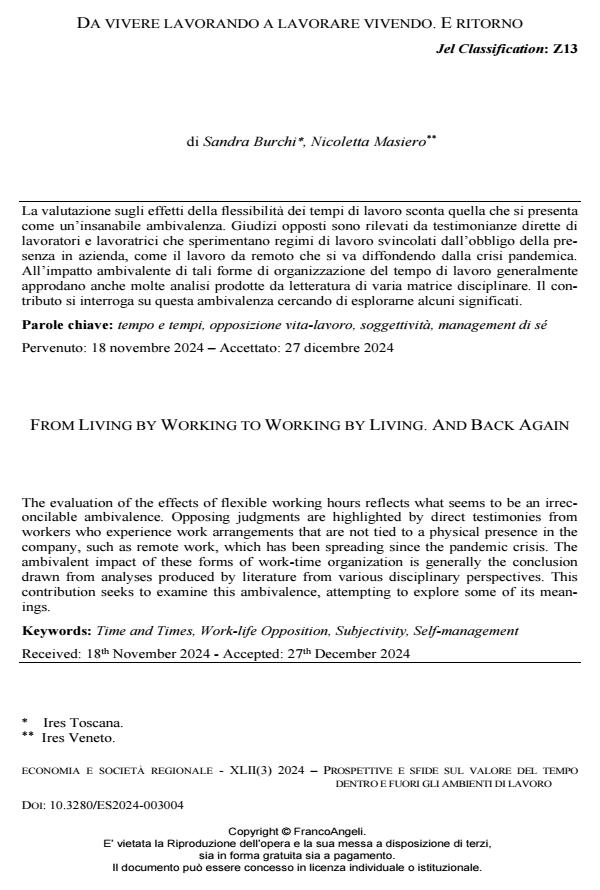From living by working to working by living. And back again
Journal title ECONOMIA E SOCIETÀ REGIONALE
Author/s Sandra Burchi, Nicoletta Masiero
Publishing Year 2025 Issue 2024/3
Language Italian Pages 23 P. 46-68 File size 329 KB
DOI 10.3280/ES2024-003004
DOI is like a bar code for intellectual property: to have more infomation
click here
Below, you can see the article first page
If you want to buy this article in PDF format, you can do it, following the instructions to buy download credits

FrancoAngeli is member of Publishers International Linking Association, Inc (PILA), a not-for-profit association which run the CrossRef service enabling links to and from online scholarly content.
The evaluation of the effects of flexible working hours reflects what seems to be an irreconcilable ambivalence. Opposing judgments are highlighted by direct testimonies from workers who experience work arrangements that are not tied to a physical presence in the company, such as remote work, which has been spreading since the pandemic crisis. The ambivalent impact of these forms of work-time organization is generally the conclusion drawn from analyses produced by literature from various disciplinary perspectives. This contribution seeks to examine this ambivalence, attempting to explore some of its meanings.
Keywords: Time and Times, Work-life Opposition, Subjectivity, Self-management
Jel codes: Z13
Sandra Burchi, Nicoletta Masiero, Da vivere lavorando a lavorare vivendo. E ritorno in "ECONOMIA E SOCIETÀ REGIONALE " 3/2024, pp 46-68, DOI: 10.3280/ES2024-003004